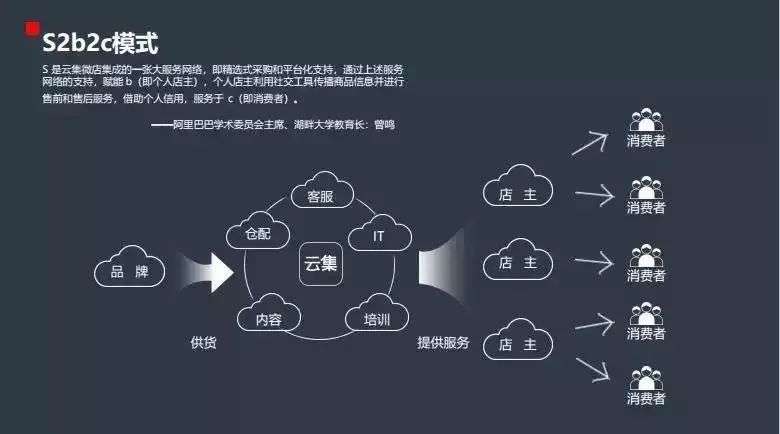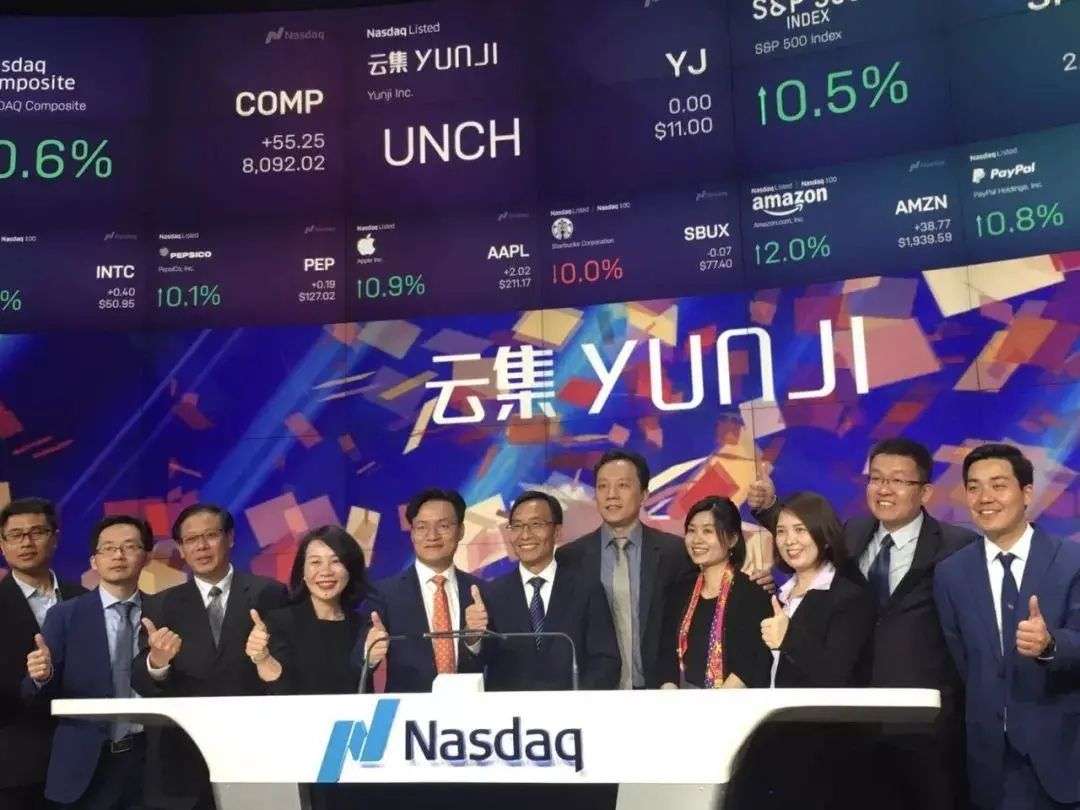With live broadcast + limited time purchase + membership + social networking, Yunji is becoming less and less of its own characteristics.
Editor’s note: This article is from the WeChat public account “Zhang Dongwei” (ID: zhangdongwei19750613), author: Zhang Dongwei.
The e-commerce industry is surging, and it is not an exaggeration to say that it is the most intense battlefield. Alibaba, JD, and Pinduoduo firmly occupy more than 80% of the Chinese e-commerce market, while Vipshop, Mushroom House, and Dangdang have seized a place with differentiated development.
In a competitive market, once there is a new trend, players will flock to it. Live streaming is the best example. “No live streaming, no e-commerce” has now become an industry law.
Before the advent of live broadcasts, social e-commerce was once all the rage, but nowadays it is rarely discussed. Perhaps not many people will remember the gathering of social media, known as the “first stock of member e-commerce.”
No one is willing to be abandoned by the public, even more so. On May 16, which coincided with the sixth anniversary of its establishment, Yunji released the two strategies of “deepening membership e-commerce + developing professional retail”, opening the era of member e-commerce 2.0.
From “micro business” to “member e-commerce”, from “social” to “professional retail”, Yunji’s strategy has changed again and again over the years, trying to keep up with the pace of the industry.
First, commercialization, embarking on a lost track
In 2015, Yunji started by relying on the multi-level distribution model of “shop owner-mentor-partner”.
But when it comes to distribution, many people naturally think of MLM.
In fact, in 2017 Yunji was fined 9.58 million yuan by market supervision for suspected pyramid schemes for such an operating model.
Later, in order to avoid legal risks, Yunji changed its distribution model to “store owner-supervisor-manager”, and its positioning also shifted from social e-commerce to member e-commerce.
Under the membership e-commerce model, consumers who become members by paying membership fees can not only enjoy product rebates, coupons and other rights, but also get commissions when they develop offline members. In theory, to provide members with a variety of values and benefits, members will spontaneously expand to more members and consumers, and the number of members will increase exponentially.
The ideal is full, but the reality is not like this.
Because member e-commerce highly relies on members’ personal social networks, the support of social platforms is particularly important. However, Tencent’s ban on WeChat plug-ins has been strengthened step by step, and Yunji’s membership development has also been hindered.
According to public data, from 2016 to 2020, the number of Yunji trading members were 600,000, 2.3 million, 6.1 million, 9.6 million, and 13.3 million, a year-on-year increase of 283.3%, 165%, 57%, and 38.5%.
Analyzed, in the early stage of lax supervision, the fission of Yunji members led to an explosion in the number of members and performance, but now that the supervision is tightened, membership growth has encountered a bottleneck, and the growth rate of trading members has been greatly slowed down, even if Yunji Frequently lower the membership threshold to maintain the growth of the number of members, but after all, it is not a long-term solution. The number of members gathered may be close to the ceiling.
If you don’t have enough members but you want to be a member e-commerce business, the dream of gathering may be over when it just started. Yunji may be more aware of this, so it is constantly exploring new development paths.
In 2018, Yunji APP began to sell for a limited time, and in 2019, it has undergone a revision and upgrade.
Speaking of special sales, the public is more familiar with Vipshop. Although Yunji is in the name of boutique, it is obviously a niche brand, which is far from Vipshop, which specializes in special sales.
Social development has encountered a bottleneck that cannot be broken through. Live streaming has suddenly risen. E-commerce players quickly grab the live broadcast window. Of course, Yunji doesn’t want to miss it.
On May 15, 2020, taking the 5th anniversary celebration as an opportunity, Yunji began to live broadcast. From the live broadcast guests and online stars, it can be seen that Yunji pays enough attention to this.
During the live broadcast celebration, Yunji founder and CEO Xiao Shanglue not only opened his personal live broadcast debut, but also invited 8 celebrities such as Huang Shengyi, Li Dan, and Wang Jianguo to connect on the spot, with a subsidy of up to 10 million yuan.
After a small test, Yunji increased his bet. In September 2020, Yunji cooperated with Luo Yonghao; “Double 11” also cooperated with anchor “Yi Ge”. This year, Yunji announced that it has built a two-wheel-drive differentiated e-commerce delivery model of “public domain + private domain”.
People outside the circle look hot, but the live broadcast effect still needs to talk about the data.
The 2020 financial report shows that Yunji’s 2020 GMV will reach 35.9 billion, which is not worth mentioning compared to the second-tier e-commerce platform Vipshop’s GMV of up to 165 billion yuan, let alone the three major e-commerce giants.
From another perspective, almost all e-commerce platforms currently have their own celebrity anchors. Taobao and Tmall firmly grasp Wei Ya Li Jiaqi, while Douyin and Kuaishou are not e-commerce companies, but rely on Luo Yonghao, Simba and other celebrity anchors In the e-commerce market, in addition to cooperating with external celebrities at Yunji, only CEO Xiao Shanglue can mix in the live broadcast by virtue of his boss’s reputation.
Membership, social networking, limited time sale, live broadcast… It seems that Yunji has worked very hard and tried many development paths, but they are not satisfactory and cannot form their own moat. For the business model, Yunji still needs to continue to explore.
Second, continuous losses, investors no longer buy it
The difficulties in business development are directly reflected in performance. In March, Yunji announced its 2020 full-year results. Not surprisingly, Yunji lost money again, but its revenue was cut in half and its losses expanded far beyond market expectations.
For the whole year of 2020, Yunji’s total revenue was 5.53 billion yuan, a year-on-year decrease of 53% compared with 11.672 billion yuan in the previous year; a net loss of 152 million yuan, compared with a loss of 124 million yuan in the previous year, was a year-on-year decrease Expanded by 22.6%. Yunji has been losing money for 5 consecutive years.
In fact, the loss is not terrible. Many US stock companies have losses. For example, we are familiar with the loss of iQiyi, which has lost as much as 24 billion in the past three years.
According to US media statistics, in 2019, 40% of US listed companies are at a loss. In 2018, the proportion of loss-making listed companies reached 81%. It can be seen that in the US stock market, it is normal for companies in the new economy such as the Internet and e-commerce to lose money.
Some people can’t help asking, why do you get the support of the capital market if you are not profitable? Why should investors pay for the company’s losses? Will Yunji still be supported by investors?
This is the different investment logic of Chinese and American investors.
Paul Condela, chief analyst of emerging technologies at PitchBook, a US fintech company, said: “The increase in unprofitable IPOs reflects the general preference of the public and private markets for growth rather than profitability.”
In other words, more investors in the United States are now willing to give money to a company that can be very profitable in the future. They believe that although these potential companies have losses at the moment, their future profits are enormous.
Like Amazon, although it has not been profitable for many years, it can greatly increase its business and expand its market share, thereby achieving high profits in the future. Today’s Amazon does not lose investorsEveryone hopes to become the world’s e-commerce giant, causing Buffett to express regret for missing Amazon due to demanding profits.
As long as you have sufficient development potential, you can get investors’ funds, but if you fail to meet investors’ expectations, you will be ruthlessly abandoned by investors, but Yunji is obviously the latter.
From the perspective of the secondary market trend, Yunji has been listed in May 19, and in just two years, the company’s stock price has fallen from US$14 to less than US$2, and its market value is less than US$500 million, which has shrunk by more than 80%.
Pinduoduo once gathered for comparison, and now its stock price has exceeded $120, and its market value has exceeded $150 billion.
Yunji’s market value has been used by telescopes, and no one can see the backs of friends.
This shows that Yunji is being abandoned by the capital market.
3. Senior executives resigned in succession
Along with the release of the earnings report, there is another piece of information worthy of attention.
Since April 1, the company’s chief human resource officer and chief strategy officer Ma Hui resigned due to personal reasons and will continue to serve as a company consultant after resignation.
In December last year, Yunji’s chief financial officer Chen Chen announced his resignation from the company.
According to public information, both Chen Chen and Ma Hui joined Yunji in 2018. Before Yunji went public, Chen Chen once said, “Because the Yunji model itself is very healthy and does not burn money, when capital invests in Yunji, it mainly focuses on two points –
First, Yunji’s rapid growth and sustainability;
The second is where is the boundary of Yunji? “
Now, these two questions left to investors are becoming increasingly unanswered.
For Yunji’s current situation, I am afraid that the two veterans have long foreseen, and the resignation is also a helpless performance.
Summary:
E-commerce wars continue, industry supervision is tightening day by day, Yunji’s strategy has changed again and again, live broadcast + limited time purchase + membership + social interaction, Yunji has become less and less of its own The characteristic, and losing the characteristic is doomed to perish.
On the other hand, it uses KOC to bring goods very similar to the Yunji membership model.The Onion Group was listed on the New York Stock Exchange on May 8.
Whether it is in the capital market or in the e-commerce industry, Yunji’s situation will become increasingly difficult.



